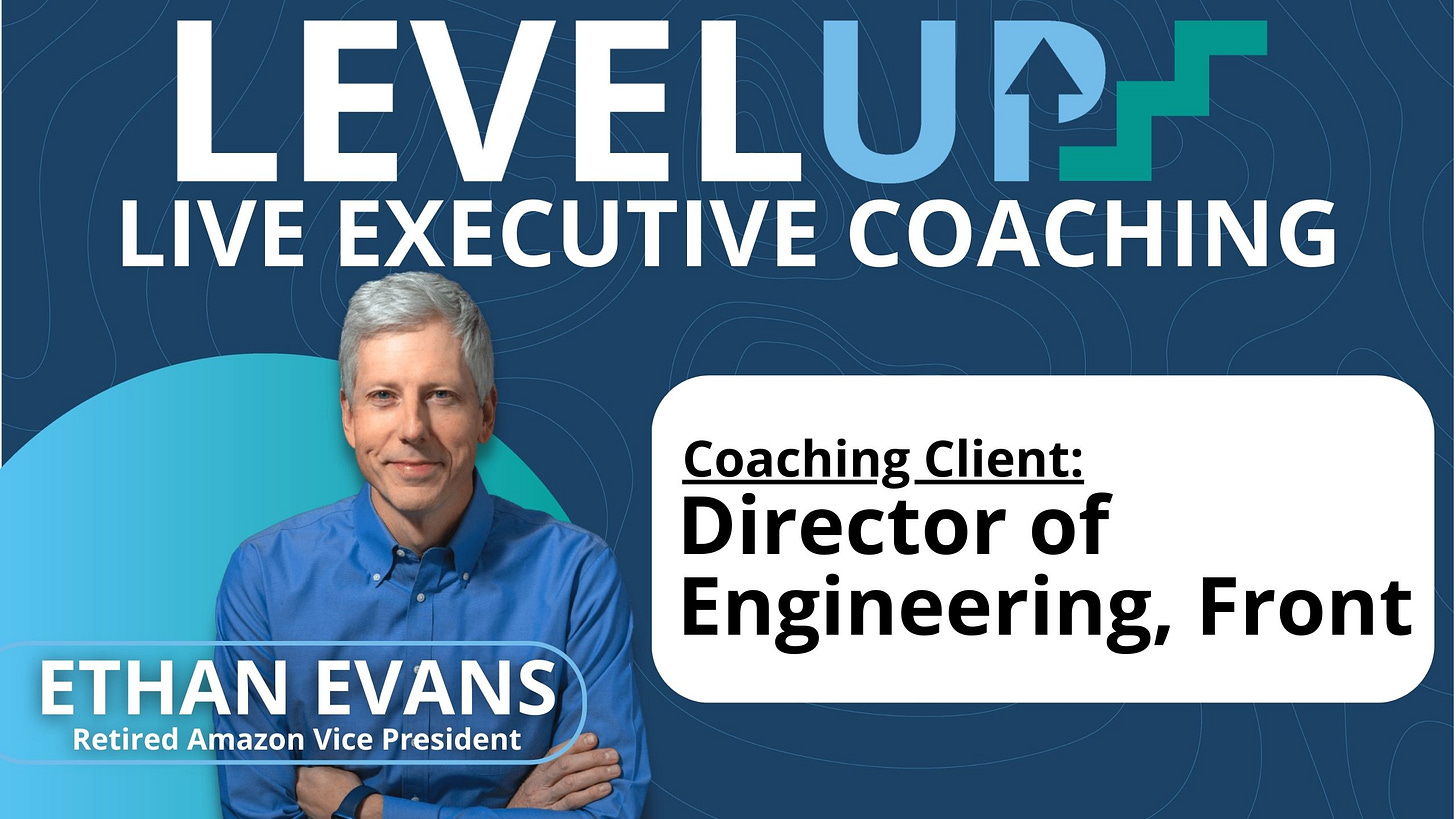Actions vs Intentions
We judge others by their actions; ourselves by our intentions.
Ethan & Jason here, we hope you had a wonderful weekend! Welcome to this week’s *free article* of Level Up: Your source for executive insights, high performance habits, and specific career growth actions.
Upcoming events:
(Jan 9) Live Executive Coaching with Ethan Evans—Client is a VP of Product Management
(Jan 29) Level Up Career Talks: Driving a Culture of Innovation
Both events and the video recordings are exclusive to newsletter paid subscribers. Checkout our new referral program where you can win a 3-month comp of our newsletter.
"I couldn't get to that report" vs "They have no dedication"
We often judge others much more harshly than we judge ourselves.
Being aware of this trend can help us become better leaders and understand how others judge us as well.
Early in my career I learned an important phrase:
"We judge others by their actions; ourselves by our intentions."
With others, we only see what they do. Then, we ascribe motives to those actions based on assumptions and biases.
For ourselves, we know what we intended. So, we tend to give ourselves slack for what we meant to do and then evaluate what we didn’t do in terms of accidents and extenuating circumstances.
For ourselves, we say "I couldn't get to the report" rather than "I let myself get sucked into YouTube and ran out of time."
For someone else, we say "Ethan didn't finish the report even though he had all day!"
This behavior is a bit more clear with something like a car wreck:
It is "I got into an accident" versus "That guy wasn't paying attention and drove right through the stop sign." It's worth understanding that in this situation the other person is telling themself, "I looked and I didn't see a stop sign. That other car came flying out of nowhere."
Being aware of this natural bias we have can help make us more empathetic towards others and more effective in advocating for ourselves.
Actions for you:
When responding to others, try to consider that their intentions were good and they probably did not mean to disappoint you.
When explaining your actions to others, be aware of this tendency in their internal narrative. You can align them to your viewpoint by providing details, such as "I was on track to complete the report, but a higher priority customer outage came up." This gives your listener an alternative "acceptable" reason for why you did not complete the work. Otherwise, they may end up inventing their own, less flattering reasons for your actions.
Indra Nooyi (former Chairman & CEO of PepsiCo) said the best advice she ever got was from her father on assuming positive intent: "When you assume negative intent, you're angry. If you take away that anger and assume positive intent, you will be amazed...You don't get defensive. You don't scream. You are trying to understand and listen because at your basic core you are saying, 'Maybe they are saying something to me that I'm not hearing.'"
Ethan live executive coaches Director of Engineering at Front (video recording now available)
A benefit of being a newsletter paid subscriber is members may apply for FREE 1:1 live executive coaching with Ethan.
On December 6 (Friday), Ethan live executive coached community member, Rajat Agarwal, Director of Engineering at Front.
Topics discussed:
Improving communication with executives.
Being a big leader while engaging with the right level of detail on a daily basis.
How to think about career and growth.
Takeaways by community members:
Reflective Telling—share what you have and ask “Are there any concerns you have that I have not addressed?” (use this to guide people to give you context).
When I need to present to an exec that I'm not that familiar with, I seek out folks who have worked with them (e.g. If you can get their Chief of Staff, the insight is gold, but others who frequently present to them are good as well) and have a coffee chat to learn what they have observed about the exec’s comms style and what they care about most.
Tools to build quick credibility:
Ask your manager to loan you credibility (increased visibility, lead big projects).
Say what you will do and then do it: raise the bar with overdeliver and delivering quickly.
Be the hero in crisis moments. Trust goes up when someone see’s something you do that “costs” you (e.g. helping someone when it’s inconvenient for you).
Be known as confident yet humble and helpful.
Build relationships via personal connection.
An executive member commented: "Rajat is clearly self aware and open for feedback. He will go a long way. Kudos."
To watch the video recording and to apply for free 1:1 live executive coaching with Ethan, click here.
Connect With Ethan & Jason
Follow Ethan on LinkedIn.
Get Ethan’s career advice on YouTube.
Connect with Jason (Ethan’s operating partner) on LinkedIn.
Learn more about Ethan’s live online courses and on-demand courses.
Contact us for corporate training, speaking, podcast appearances, and more.
Many subscribers expense this newsletter to their Learning & Development budget, use this email template to send to your manager.




